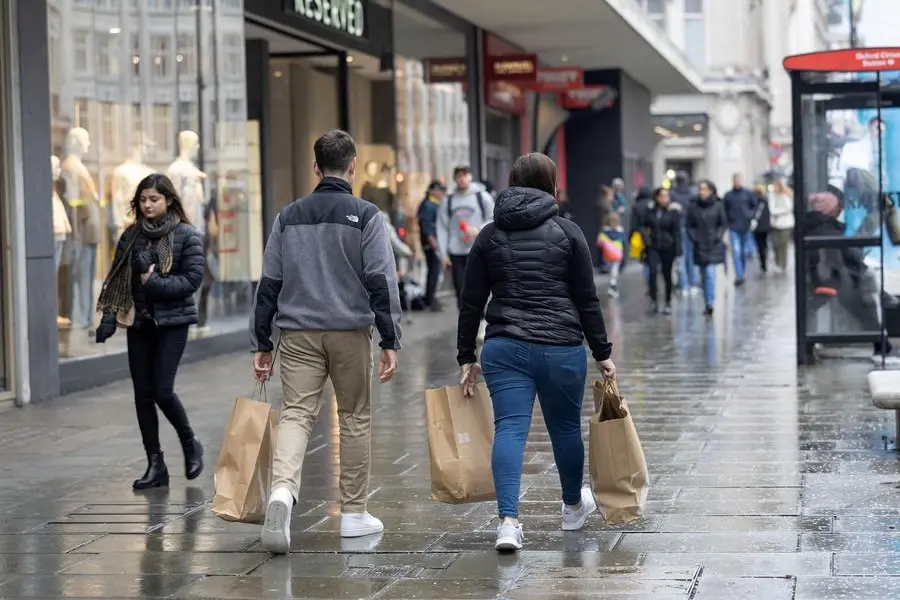PHOTO
LONDON - UK grocery price inflation eased this month to its lowest level since February 2022, but nearly a quarter of British households still identify themselves as struggling financially, industry data showed on Tuesday.
Market researcher Kantar said annual grocery price inflation was 4.5% in the four weeks to March 17, versus 5.3% in the previous four week period.
Prices are rising fastest in markets such as sugar confectionery, chocolate confectionery and vitamins & supplements and are falling fastest in butter, milk and toilet tissues, it said. “Grocery inflation has come down significantly since hitting an eye-watering peak of 17% in March 2023," Fraser McKevitt, Kantar's head of retail and consumer insight, said.
"However, despite this continued slowdown, many British households are still feeling the squeeze. 23% identified themselves as struggling financially in our data – the same proportion as reported in November last year.”
Kantar said take-home grocery sales rose 4.6% over the four week period year-on-year. The researcher noted an early Easter boosted sales of seasonal treats in the first three months of 2024 by 88 million pounds ($111 million) compared with the same period last year.
Kantar said online supermarket Ocado was the fastest growing UK grocer over the 12 weeks to March 17, with sales up 9.5% year-on-year, benefiting from a sustained voucher campaign which helped it attract customers.
Industry leader Tesco and No. 2 Sainsbury's saw their sales increase by 5.8% and 6.7% respectively and they both won share. No. 3 Asda was the clear laggard, with sales up 0.2%, while Morrisons' sales rose 3.6%.
German-owned discounters Aldi and Lidl saw sales growth of 3.1% and 8.8% respectively.
However, while Lidl's market share increased, Aldi's edged lower. UK supermarkets' market share and sales growth (%)
Source: Kantar
($1 = 0.7913 pounds)
(Reporting by James Davey; Editing by Aurora Ellis)





















